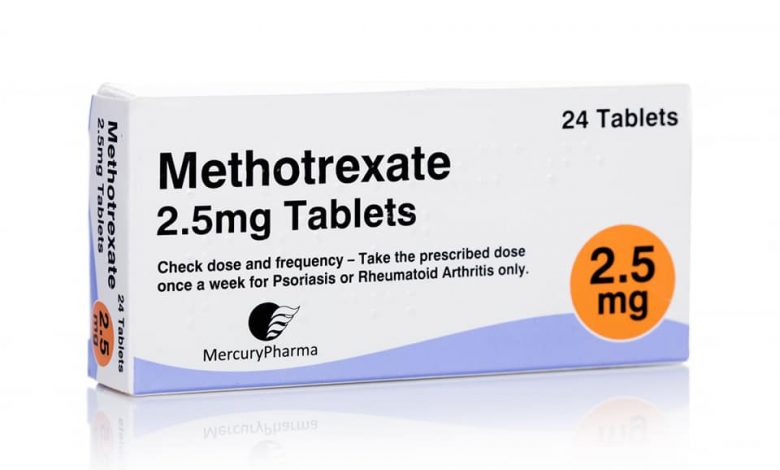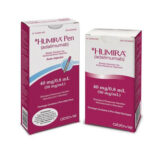Side Effects Of Low-Dose Methotrexate

In the late 1990s, a “low dose” hypothesis was proposed based on studies that purported to show that hormonally active environmental agents were causing a variety of effects, mainly reproductive and developmental, at “low doses.” The supporters of this hypothesis claim that traditional “high-dose” toxicity studies are not adequate to assess adverse effects from these hormonally active agents in that they do not detect effects that are occurring at “low doses.” In addition, it is claimed that these “low dose” effects are occurring at levels comparable to those to which humans are being exposed.
These claims have been controversial and expert panels evaluated the evidence behind them in the early 2000s. Although these panels generally concluded that such “low dose” effects were not conclusively established, proponents of the “low dose” hypothesis assert that a large number of more recent studies now provide clear support for their hypothesis.
What is Methotrexate?
Methotrexate is used to treat severe psoriasis (a skin disease in which red, scaly patches form on some areas of the body) that cannot be controlled by other treatments. Methotrexate is also used along with rest, physical therapy, and sometimes other medications to treat severe active rheumatoid arthritis (RA; a condition in which the body attacks its own joints, causing pain, swelling, and loss of function) that cannot be controlled by certain other medications.
Methotrexate is also used to treat certain types of cancer including cancers that begin in the tissues that form around a fertilized egg in the uterus, breast cancer, lung cancer, certain cancers of the head and neck, certain types of lymphoma, and leukemia (cancer that begins in the white blood cells). Methotrexate is in a class of medications called antimetabolites. Methotrexate treats cancer by slowing the growth of cancer cells. Methotrexate treats psoriasis by slowing the growth of skin cells to stop scales from forming. Methotrexate may treat rheumatoid arthritis by decreasing the activity of the immune system.
Methotrexate is also sometimes used to treat Crohn’s disease (a condition in which the immune system attacks the lining of the digestive tract, causing pain, diarrhea, weight loss, and fever), multiple sclerosis (MS; a condition in which the immune system attacks the nerves, causing weakness, numbness, loss of muscle coordination, and problems with vision, speech, and bladder control), and other autoimmune diseases (conditions that develop when the immune system attacks healthy cells in the body by mistake). Ask your doctor about the risks of using this medication for your condition.
Typical dosing for methotrexate
Certain cancers: The dosing for methotrexate is different for each person depending on your condition and your body surface area. Body surface area is a way to choose the dose of a medication based on a calculation that uses your height and weight. The dose is usually only taken once per week. Your provider will explain how to use the medication for your condition. Methotrexate can also be combined with other medications.
Arthritis in children: For children, the dosing for methotrexate is different for each child depending on their body surface area. Body surface area is a way to choose the dose of a medication based on a calculation that uses height and weight. The dose is usually taken by mouth once weekly.
Rheumatoid arthritis: The typical starting dose is 7.5 mg by mouth once per week up to a maximum of 20 mg by mouth once weekly.
Psoriasis: The typical dose is 10 mg to 25 mg by mouth once weekly to a maximum dose of 30 mg by mouth once per week.
Low-dose methotrexate is an effective first-line treatment for early rheumatoid arthritis and other inflammatory arthropathies, and as maintenance therapy in Crohn’s disease, vasculitis, and refractory atopic dermatitis. The usual dose is 5 to 25 mg once weekly.
Side Effects Of Low-Dose Methotrexate
Studies have shown that pancytopenia occurs in less than 1% of patients and typically resolves after stopping treatment. Hepatotoxicity ranges from mild steatosis to severe fibrosis and cirrhosis and is associated with long-term use, obesity, diabetes, and alcohol use. Low-dose methotrexate is associated with a 2.04-fold increased risk of skin cancer according to a report in Annals of Internal Medicine.
Pulmonary toxicity occurs in less than 8% of patients, usually within the first year of treatment. Painful stomatitis and gastrointestinal upset are the most common minor adverse effects.
Do I need to take a folic acid supplement with low-dose methotrexate?
Yes, methotrexate lowers folate levels in your body. Taking a folic acid supplement will help prevent side effects. The usual dose is 5 mg of folic acid by mouth once per week or 1 mg of folic acid by mouth per day except for the day you take your methotrexate. Your provider will tell you what dose is best for you.
Can I receive any vaccine while taking low-dose methotrexate?
No, not every vaccine is okay to receive when taking methotrexate because you can develop an infection. Some vaccines like the measles, mumps and rubella vaccine are considered “live” vaccines and these should not be received. Methotrexate weakens your immune system so you might be harmed by the live viruses in these vaccines.
Is low-dose methotrexate safe during pregnancy?
No, methotrexate is not safe during pregnancy because it can harm an unborn baby. Both men and women must use birth control during sexual intercourse and even for several months after stopping methotrexate. Avoid pregnancy for at least 6 months for women and 3 months for men after your last dose.
How long does it take for low-dose methotrexate to help my rheumatoid arthritis?
It usually takes 3 to 6 weeks, but it can take as long as 12 weeks.
What are the different brand names for methotrexate?
Methotrexate is available as a generic tablet and a generic injection, but it also comes in brand-name versions. The brand-name medications include Otrexup, Rasuvo, and RediTrex. These are auto-injections that you inject yourself underneath your skin, and they are not used for cancer. Another brand name is called Xatmep, which is an oral liquid version of the medication that is meant for children only. Your provider will explain to you your options depending on your condition, your preferences, and your insurance.
You may find useful information on What To Expect After Taking Methotrexate For Ectopic Pregnancy





